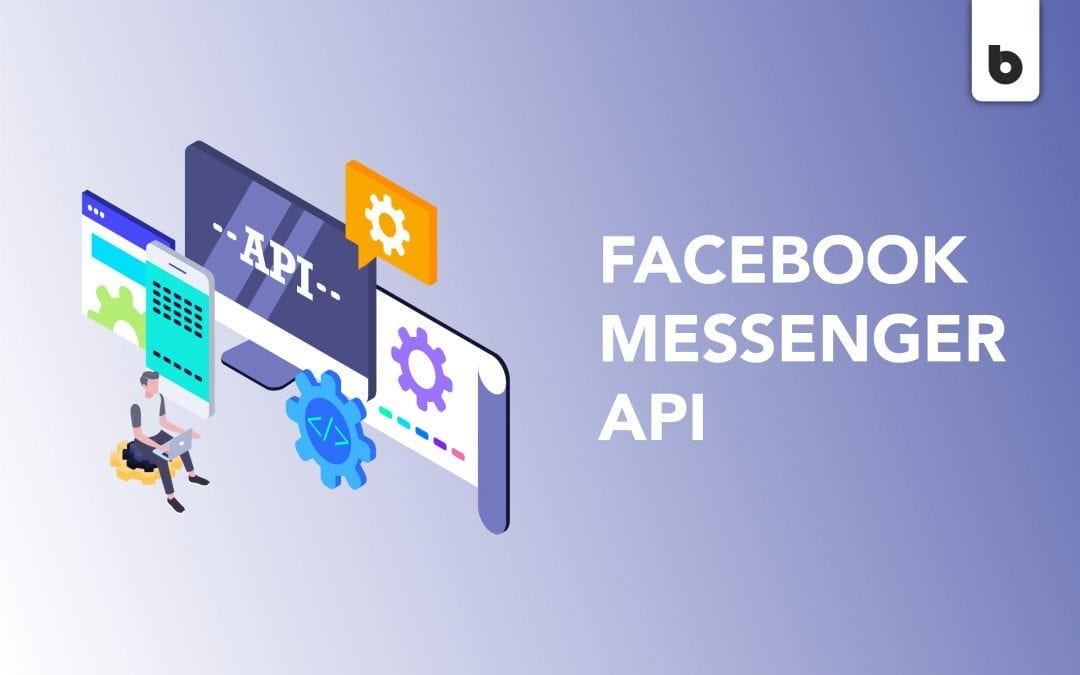Back in 2016, Facebook officially launched Messenger Platform, an automated messaging tool aimed at businesses to send messages to clients giving them an overview of the company, sending links or videos, or answer customer questions about products or services. Then, in 2018, they added a feature that allows you to message clients who engage with your posts through comments. The idea is similar to the “live chat” feature which has been a staple on many e-commerce sites for a while, and the ultimate goal is to convert businesses to Messenger Platform as opposed to having customers call the 800 number for the company. But how can this feature be relevant to your specific business?
How does the Facebook Messenger API work?
An API is an application programming interface – in layman’s terms, APIs allow applications to communicate with each other. They can be really helpful to your business, and they help a lot with data tracking and interacting with your clients. Essentially, Messenger Platform uses AI (artificial intelligence) to recognize client questions and answer them. This feature basically helps you create an electronic customer service representative, and it’s awesome. With this software, rather than your client trying to navigate your website to find the “contact us” page and having to wait a bit for a response or calling your company to ask questions, they are able to text your business the same way they would text a friend – pretty convenient, right?
Want to see this messenger tool in action? Check out the example here to see just a few of the awesome things you can do with this feature.
Why should you use this feature for your business?
Ultimately, our world is changing and becoming more digital every day. Facebook is currently the most used social media app in the United States, reaching over 168 million people (as of March 2019). Now, this may sound like you’d have a lot of business competition with that many people on the platform, but out of that number, there are 6 million advertisers – but only 300,000 messenger tools (like Messenger Platform) are being used. That narrows the competition significantly.
By using Messenger Platform, you are also saving time to focus on aspects of your business which are a little tougher to automate. When you have a messenger tool replying to customer questions, you free up time to help customers in-store, discuss potential business partnerships with clients, and spend more intentional time with coworkers instead of replying to customer emails and/or messages for hours on end. Additionally, when a customer seems ready to make a purchase, the tool can direct them to your service team to get the order started, allowing them more time to work directly with the customer and increase the quality of the transaction.
Want some tips for using Facebook Messenger?
Start simple. As with everything, there’ll be an adjustment period. In the beginning, setting one task for your messenger tool to complete is ideal because it allows both you and your clients to adjust to the new software.
Get personal. Identify things that make your customers feel important and heard, and make sure your messenger tool is acting as a friendly advocate for your business.
Remain available. While having a messenger tool can save a lot of time and increase productivity, it can’t exactly replicate talking to an actual human. Stay accessible, and always have a feature that will direct clients to where they can talk to one of your representatives.
No matter what you’re using your messenger tool for, make sure it’s a positive representation for your company and build it in a way that your customers can get the help they need in an efficient, friendly way.
The process of creating an effective API takes a lot of time and a lot of practice, so it’s helpful to have a partner in doing so. Wanting to learn more about Messenger Platform and how to balance increased productivity with better quality customer interactions? Contact Blackwood Creative to start growing your business through social media.

